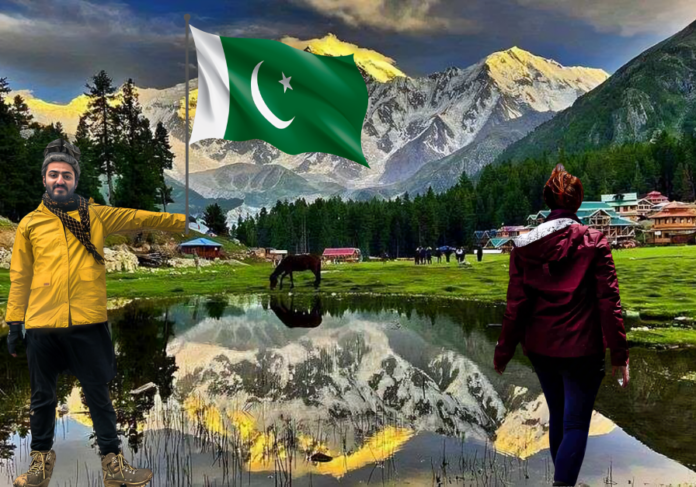For those looking to explore the breathtaking landscapes of Gilgit-Baltistan, understanding the Pakistan trekking permit process is crucial. Trekking permits are exclusively available through designated tour operators in Pakistan, ensuring a structured approach for foreign tourists. While this may not typically concern travelers, it’s essential to be informed about the procedures and associated fees involved in obtaining these permits.
The Pakistan trekking permit process is managed by the Gilgit-Baltistan Council Secretariat, the official government body responsible for issuing permits for treks in restricted areas. It’s important to note that no trekking permit is required for visiting the open areas of Gilgit-Baltistan. However, if you plan to climb peaks exceeding 6,500 meters, a permit from the Gilgit-Baltistan Council is mandatory, regardless of whether you’re in an open or restricted area.
Required Documents for Pakistan trekking permit process
To obtain a trekking permit, foreign travelers must submit their applications through registered tour operators with the Department of Tourist Services, Government of Pakistan. The application must include four sets of the following documents:
- Application from the tour operator on official letterhead.
- List of expedition members, formatted as issued by the Gilgit-Baltistan Council.
- Route map of the proposed trek or peak, according to the designated format.
- Passport copies of all expedition members.
- Visa application forms, duly filled out by foreign trekkers.
- Occupation details of trekking members.
- Copy of the tour operator’s license.
- Receipt of paid trekking fees.
- Receipt for the waste management fee.
Trekking Permit Application Procedure
Once the tour operator submits a complete application, it is forwarded to various government departments for necessary clearances. The processing time for the Pakistan trekking permit process typically ranges from 4 to 6 weeks, in line with the existing visa regulations.
Trekking Fees Overview
Both trekkers and mountaineers are subject to trekking fees when journeying to base camps for climbing. The standard fee is US$50 per person for one month for treks located in restricted areas of Gilgit-Baltistan.
Payment Details for Trekking Fees:
- Account Title: Gilgit-Baltistan Council Secretariat
- Account Number: 1975-7
- Bank: National Bank of Pakistan
- Bank Address: S Block, Pak Secretariat, Islamabad
Waste Management Fee
For those trekking in the Central Karakoram National Park (CKNP), an additional waste management fee of US$50 per group member is required.
Payment Details for Waste Management Fees:
- Account Title: Central Karakoram National Park (CKNP)
- Bank: Habib Metropolitan Bank, Jutial Branch, Gilgit
- Account Number: 6-02-86-20311-714-104814
- IBAN: PK91MPBL0286027140104814
Issuance of Trekking Permits
After receiving all necessary clearances, the Gilgit-Baltistan Council Secretariat will issue the trekking permit, provided that the following formalities are completed by the tour operator:
- Payment of the prescribed trekking fee.
- Submission of the application for the trekking permit.
For updates on the status of your application, tour operators can only obtain information from the Tourism Section of the Gilgit-Baltistan Council Secretariat.
Understanding the Pakistan trekking permit process is essential for foreign travelers looking to experience the natural beauty of Gilgit-Baltistan. By following the guidelines and ensuring all documentation is in order, you can embark on an unforgettable trekking adventure in this stunning region.
Discovering Pakistan: A Land of Beauty and Hospitality
Traveling to Pakistan promises a journey filled with surprises, showcasing stunning landscapes, rich cultural heritage, and renowned hospitality. From the majestic peaks of the Karakoram and Himalayas to the serene Indus River, Pakistan boasts breathtaking forts, mosques, and archaeological sites.
Each region offers unique attractions, whether it’s the vibrant Hunza Valley, the historical Lahore Fort, or the beautiful coastline of Karachi. While the country faces some challenges, its welcoming people and rich traditions make it an increasingly popular destination. Planning is key to ensuring a safe and memorable experience in this captivating country.


